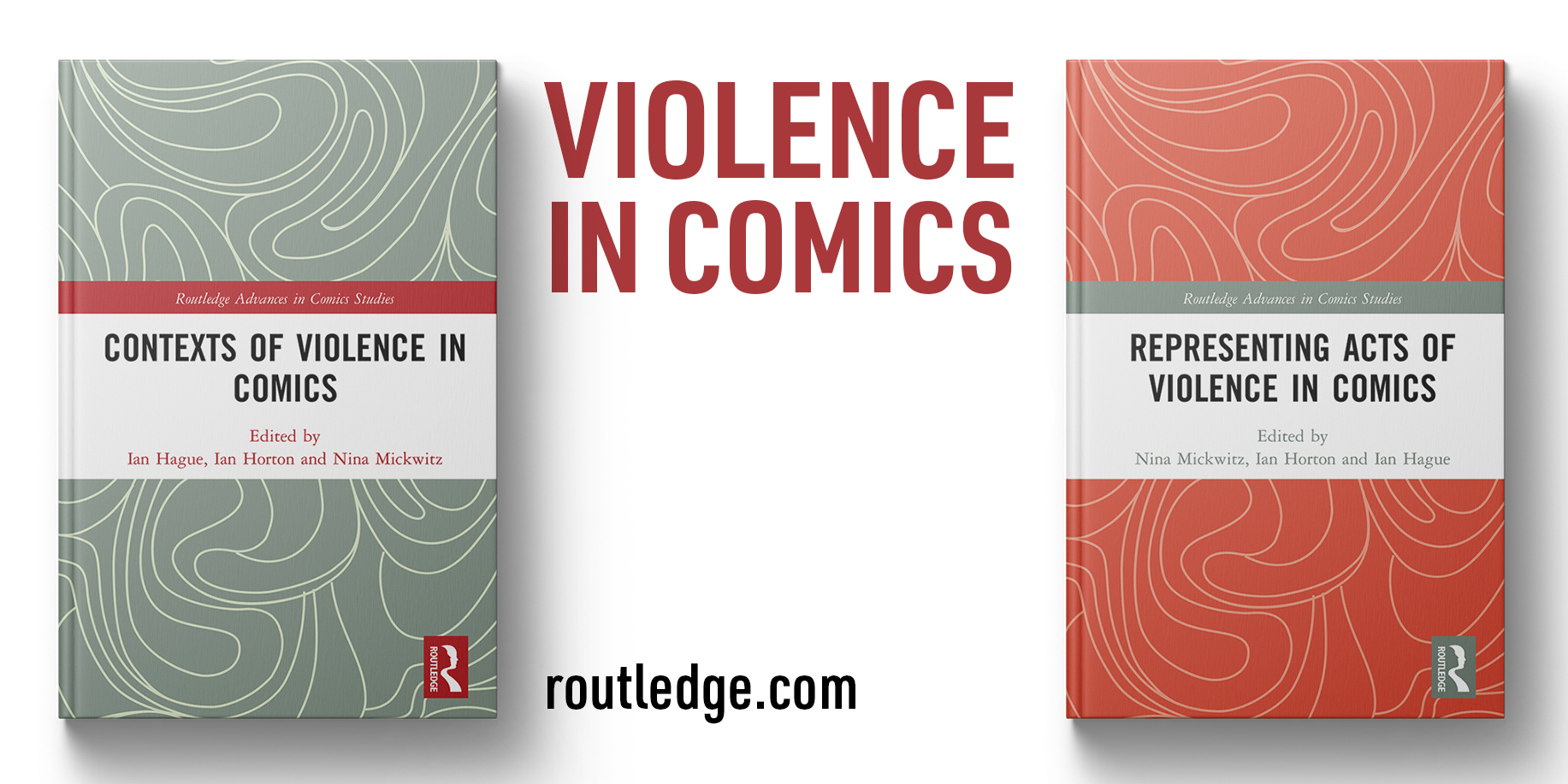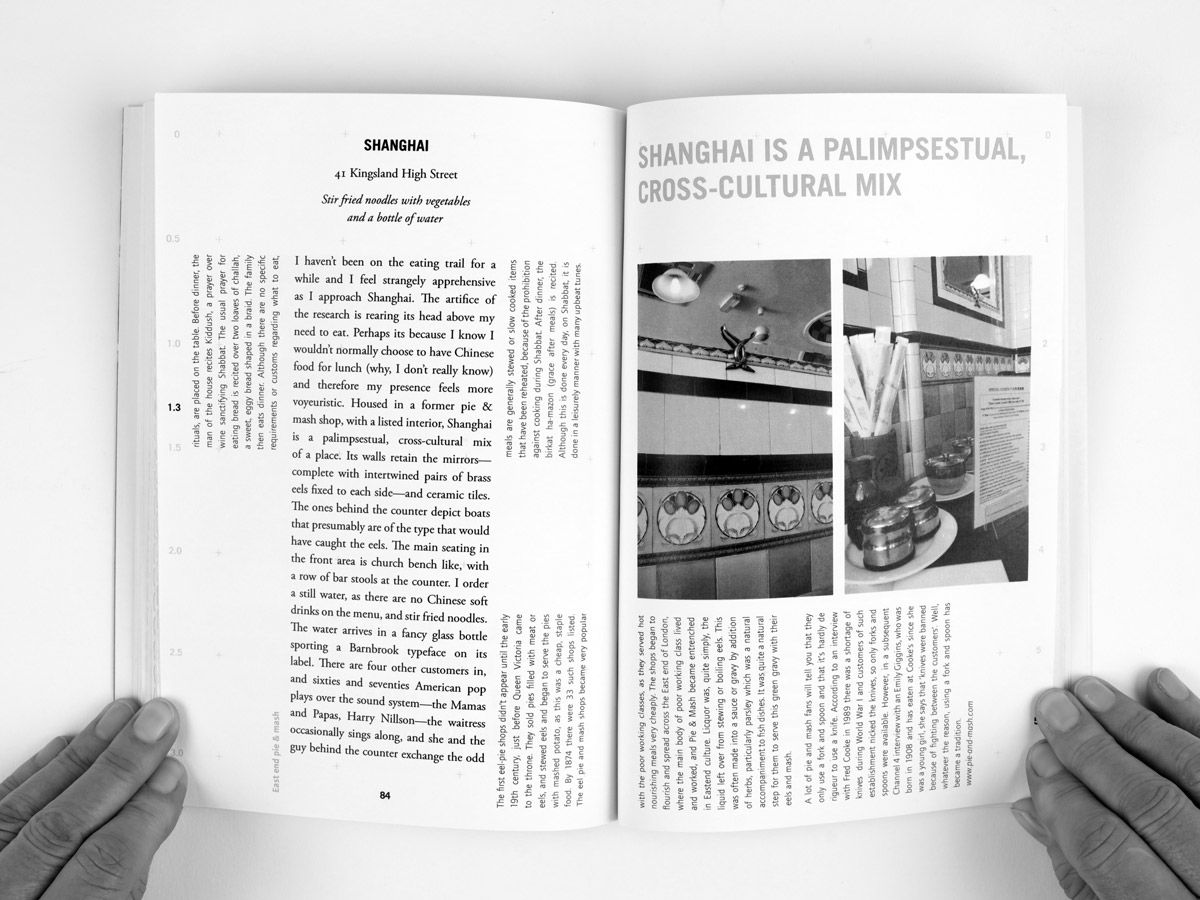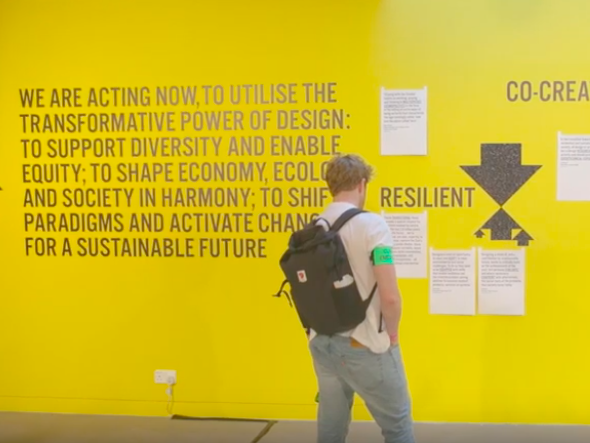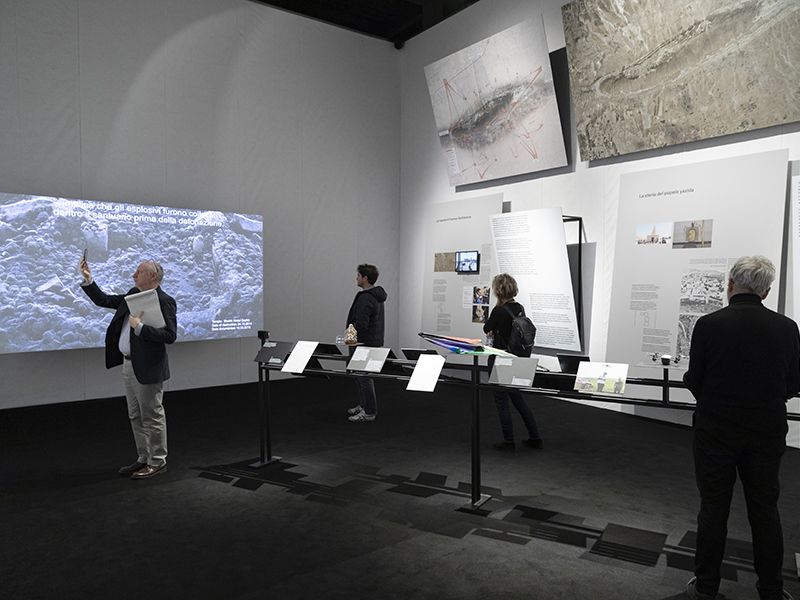Researchers and lecturers from London College of Communication have edited a new book focusing on violence in comics, published by Routledge.
Ian Hague, Ian Horton and Nina Mickwitz – researchers at the College who teach across courses in LCC’s Design School – have published 'Contexts of Violence in Comics', which asks the reader to consider the ways in which violence and its representations may be enabled or restricted by the contexts in which they take place.
We sat down with Ian, Ian and Nina, to find out more...
How did the books come about? What was the spark?
The two books started life as a conference that Ian Hague and Comics Forum ran in 2014. The conference papers there explored such a rich selection of topics and ideas that we felt there was enough material for a book but as we started to work on it we realised that if we added in some other work in the field that was happening outside the conference that actually there was enough for two books! Once we had worked out how to split the materials across the two volumes we had the shape of the work. Contexts of Violence in Comics looks at how contexts like war or laws might inform violence in comics (or prevent it being shown), while Representing Acts of Violence in Comics deals with how we can actually show violence through the drawn line.
Why do you feel it is important for the history of comics to analyse how violence is presented?
One of the big surprises in working on the book was how little research there is that really focuses on violence itself. There is a lot of material that connects to violence, but doesn’t really place it front and centre – violence is often discussed as a side effect or a secondary element of a bigger area like war, abuse, social upheaval and so on. What we wanted to do was really push the discussion of violence in a more directed way towards what it means to depict violence in and of itself, and really think through how those bigger contexts enable, produce or prevent violence (as opposed to the other impacts it’s often bundled up with).
"Violence is a general concern for society, it’s not limited to comics or any one particular medium." – Ian Hague
We also wanted to make some connections that are common in comics, but may not be conventionally connected to violence. We’re really pleased, for example, to have a section in Representing Acts of Violence in Comics about humour – not necessarily what you would immediately think of when you consider violence but it’s actually quite common in comics, as the chapters on ‘Dennis the Menace and Gnasher’ and Dragon Slippers among other texts, make clear. Being able to get that breadth has been a really rewarding aspect of working on the books.
How did you go about choosing the contributors?
The initial set of contributors came from the Comics Forum 2014 conference, and they gave an initial shape to the books with their contributions. About ten or eleven of the chapters across the two volumes came from the conference. As we worked with those contributions it became clear that there were some gaps in the subject coverage that we really wanted to fill, and at that point we began to look for authors who were experts in those areas. Once we had recruited the whole set of authors we realised that we would need to split the material because there was just too much to fit comfortably in one volume. Luckily for us the publisher and the series editors agreed!
Who will these books be of interest to, and what can students expect to take from them?
The books are likely to be interesting to academics working in Comics Studies, as well as Cultural and Media Studies more generally. There’s a really broad range of material across the two books so we’re hoping that people working in quite a wide range of areas will take a look. Of course violence is a general concern for society, it’s not limited to comics or any one particular medium, and we hope the books will make useful contributions to a range of discussions on the subject.
For students, we think the books will provide good ways to pursue focused research on violence, and hopefully develop our understandings further still, perhaps with reference to a different range of comics and other works.
What’s next for the three of you?
We are collaborating on the development of UAL’s Comics Research Hub, which is home to lots of the UK’s top comics researchers (and which includes among its members quite a few contributors to the two volumes of Violence in Comics). We are all working on our next research projects at the moment: Ian Hague is working on digital comics, Ian Horton on comics and art history, and Nina on comics mobilities. We will probably work together on something else in future when those other projects are complete. Until then we are enjoying co-teaching Illustration and Visual Media here at LCC!
'Representing Acts of Violence in Comics' and 'Contexts of Violence in Comics' is available on Routledge now.
- Learn more about UAL’s Comics Research Hub
- Find out about Research at London College of Communication
- Read more about London College of Communication's Design School





